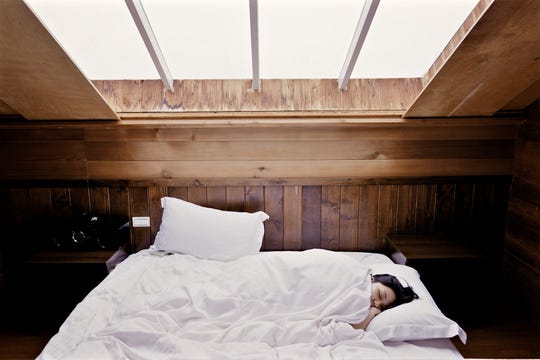
Ty Tagami, The Atlanta Journal-Constitution Published 5:03 p.m. ET July 14, 2020
CONNECTCOMMENTEMAILMORE
Atlanta – Alicia Simpson’s daughter may be precocious, having skipped a grade, but mom is worried that her 8-year-old is advancing too quickly in an unhealthy way.
Bradley, a rising fourth grader, used to be an early-to-bed kid but has been going to bed later since COVID-19 upended her life. She is now getting nine or 10 hours of sleep when she used to get nearly a dozen.
“For someone who clearly has a natural high need for sleep, what does this mean?” asked Simpson, who observed that her own bedtime has pushed later, too.
Simpson is experiencing something that doctors, researchers and teachers say is a real trend, with potentially harmful consequences if parents fail to rein it in. In extreme cases, they are seeing kids going to bed nearly when they used to wake up.
“It’s happening,” said Dr. Stephanie Walsh, medical director of Child Wellness at Children’s Healthcare of Atlanta. She is concerned because sleep affects emotional, physical and mental health — basically all aspects of life. It’s even happening in her own household: She goes to bed before her sons, but keeps them in line by reminding them she will wake them on schedule, though she admits letting them stay up later than normal, until 1 a.m.
Jordan Kohanim, a high school English teacher in Fulton County, said in the spring that her juniors were often groggy for her 10 a.m. video conferences. Many told her they’d gone to bed at 4 a.m.
“I would say 70% of my kids said their sleep patterns went off the wall,” said Kohanim, who had 108 on her roster at Milton High School. “A lot of kids are staying up very, very late.”
It’s not just high school students.
Bridget Edison teaches seventh grade English and social studies in Early County in southwest Georgia.
After schools closed in March, many of her 50 students started emailing her questions about their assignments later and later, some telling her they now slept until 2 p.m.
“In the beginning, I was pretty much on call around the clock,” she said. “I had to tell them, guys, I’m probably not going to respond to you at midnight.”
This was predictable, sleep expert Donn Posner said.
“What happened with coronavirus is every day became a weekend,” he said, “and everybody was allowed to sleep in their own preferred phase.”
For reasons as yet unclear to science, the natural bedtime for teens generally shifts later, and the pandemic has exacerbated that tendency by removing the guardrails on their lives.
Video games are another major cause of the late-night shift.
Marion Ross, 15, is among the many teens in the thrall of video games.“I’m playing my game with other folks,” he explained one recent morning, groggy because his grandmother had awoken him at 11 a.m. for the interview.
The Macon, Georgia, youth plays Fortnite, Grand Theft Auto and NBA 2K remotely with his friends until after sunrise sometimes.He lives with his grandmother, Cheryl Thomas, who has been indulging him during the coronavirus lockdown. She knows he’s bored and she feels sorry for him. .
When school starts, she said, “That game is going to be taken away. … Sometimes you’ve got to know when to be hard on them.”
CONNECTCOMMENTEMAILMORE
Read or Share this story: https://www.detroitnews.com/story/life/2020/07/14/reeling-kids-quaratine-bedtimes/112237688/